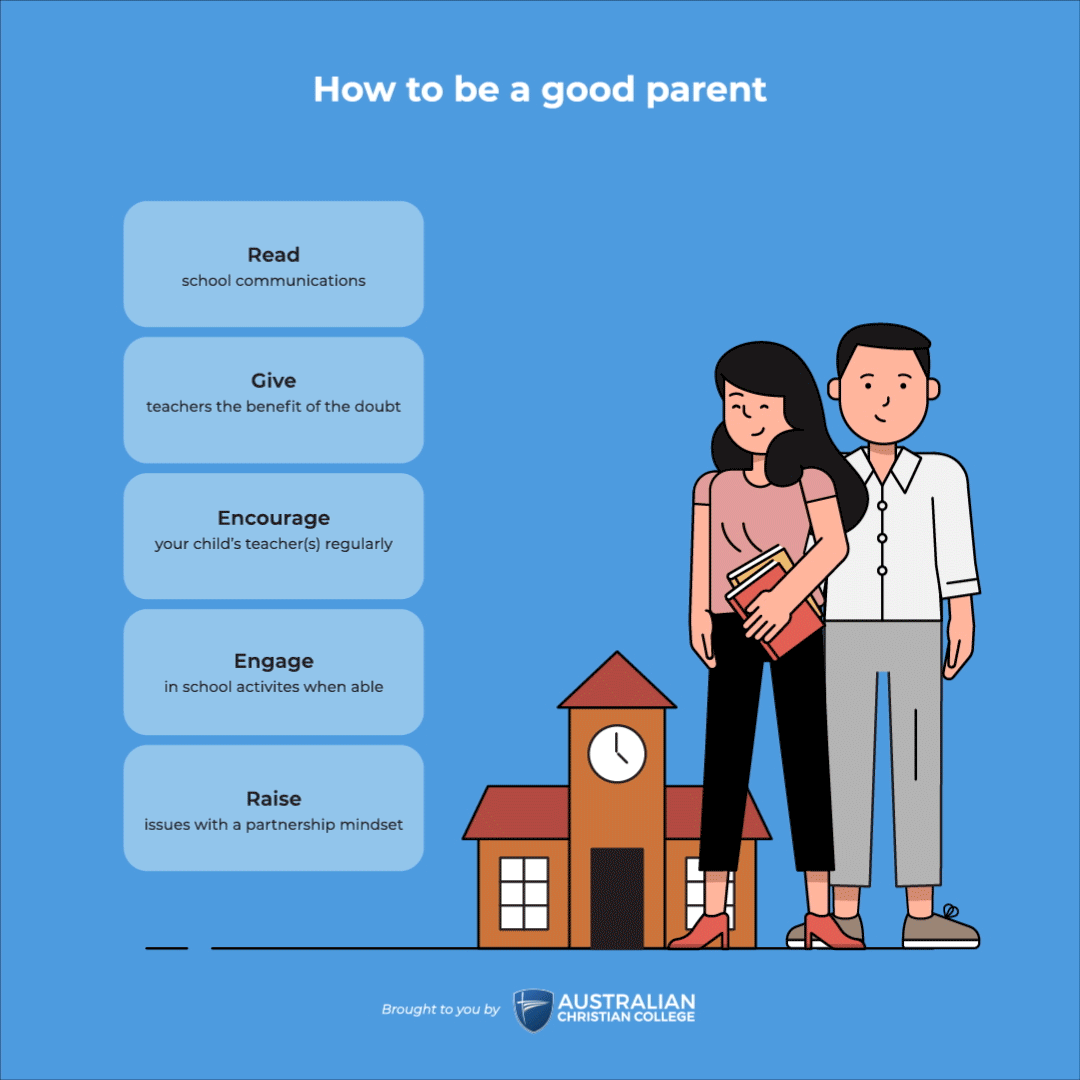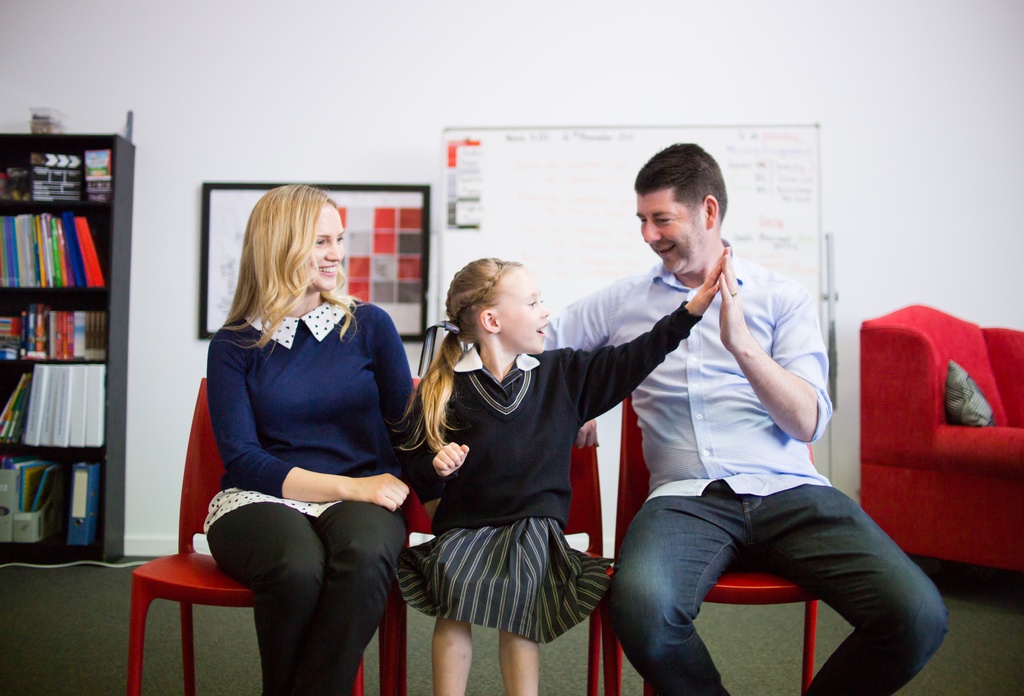What is the role of parents in education?

Table of Contents
Key takeaways.
- Parental Influence is Paramount: Parents are the primary architects of their child's learning and character development. This role is crucial and irreplaceable, extending beyond facilitation to active participation in their child’s education.
- Schools as Partners, Not Substitutes: Schools contribute significantly to a child's development in various areas, but they complement rather than replace the nurturing home environment. The collaboration between school and home is key to a child's success.
- Harmonising School and Family Values: Aligning the values taught at school with those at home is crucial for a seamless and supportive upbringing. This harmony reduces conflicts and enhances the child’s overall development.
- Parental Engagement in School Life: Active parental involvement in school activities and events is essential. It strengthens the bond between home and school, supporting the child's academic and social growth.
- Parent-Teacher Interactions are Vital: Engaging effectively in parent-teacher interviews can greatly impact a child's education. These interactions offer a platform for parents to participate actively in their child's educational journey.
- School Community’s Impact: Involvement in the school community and events offers practical lessons and experiences for students, fostering skills like teamwork, leadership, and empathy.
Read on to discover how these factors interplay in shaping a holistic educational experience for children, and find practical tips for enhancing this vital collaboration between home and school.
Ever considered the extent of a parent's influence in a child’s education? This question is crucial, especially when pondering the balance between home and school responsibilities. In the formative years of a child's life, the parent's role is paramount and irreplaceable.
Parents are not just facilitators but active participants in their children's educational journey. Whether choosing a Christian school that aligns with family values or any other educational institution, the constant factor remains: It's the parents who primarily shape their child’s learning, character development, and the cultivation of positive student attributes.
While schools play a significant role by offering around 30 hours per week of structured learning for about 40 weeks a year, they are partners in this journey, not substitutes. They provide critical support in areas like intellectual, emotional, physical, social, and spiritual growth, helping students evolve into responsible citizens. However, the nurturing environment, love, guidance, and support a child receives at home is continuous and forms the foundation of their overall development.
The collaboration between school and home is essential. Research has consistently shown that children perform better academically, stay in school longer, and engage more in their studies when there's a partnership between their educators and parents. Engaged parents contribute significantly to regular school attendance, improved behavior, and enhanced social skills in their children.
Revisiting our initial query, while schools play a vital role in supporting and enriching a child’s learning, the fundamental responsibility of education lies with the parents. Choosing the right school is important, but it is the harmonious collaboration between school and home that truly empowers children to achieve their best outcomes.
School values and family values
One key way to foster a harmonious relationship between school and home is through ensuring you share similar values.
Every parent wants a home where peace, joy and a relaxed camaraderie are the order of the day. Nobody likes living with tension at home.
Raising children who constantly challenge boundaries, question your authority, bicker or break rules can be extremely tricky.
One reason why parenting can be difficult that you may not have considered is a conflict between school values and family values.
For example, if your family values say, “We treat each other with respect”, but the school does little to manage bullying, there’s contradictory messaging between home and school. If the school teaches, “All truth is equal – you get to decide what’s true for you”, this clearly opposes the Christian belief in God’s absolute truth.
A major disconnect between the values being taught at school and those being taught at home will be a real challenge for parents to manage.
Before deciding on a school, ask yourself, “Will the school’s values contradict our own, or will they support and encourage what’s important to our family?” When school and home foster the same values, parenting becomes a whole lot easier.
How to be a good parent
As British education reformer and author Katharine Birbalsingh, CBE, explains in Battle Hymn of the Tiger Teachers, “Parents don’t always understand .... that the way to run a good school is to demand more from both pupils and parents” (p. 221). Research has consistently indicated that home life is the single biggest influence on a child’s academic results.
Given the significance of parenting on a child’s academic success, following are six ways parents of school children can be ‘good parents’ in relation to school life.
1. Read school communications
Good communication is crucial in any relationship. The relationship between school and home is no different. Some schools, like ours at ACC, go out of their way to keep parents informed about what is happening at the school and with their student.
Taking the small amount of time and effort needed to read school communications is a great investment in a positive partnership. It will help you:
- stay on top of developments around the school, such as changes to timetables or uniforms
- be aware of co-curricular opportunities, such as sporting activities, music programs or hobby clubs
- prepare in advance for any activities your child may be involved in, such as excursions or sports days
- monitor and engage in your child’s progress, by reading reports and attending parent-teacher discussions, for example.
2. Give teachers the benefit of the doubt
Does your child come home complaining about a teacher or a subject? When things aren’t going as well as you’d hoped at school, it can be easy to blame the teacher.
It’s true that quality teaching is vitally important to student success. However, many other factors play a role, including the students’ motivation levels, interest in subject content, behaviour and home situation.
Remember, most teachers enter the profession because they want to make a positive impact on the next generation. At ACC, our staff are dedicated to helping students fulfill their potential – academically, socially, physically and spiritually.
Yes, things sometimes go wrong. But please give teachers the benefit of the doubt. Most issues can be easily resolved with a little planning along with open, honest and respectful communication.
3. Encourage your child’s teacher(s) regularly
Teaching can be an extremely rewarding profession. The joy of seeing students ‘get’ new ideas and grow as people is hard to match. However, it can also be stressful. In fact, data collected by the Australian Council of Education Research before the COVID-19 pandemic showed 58 percent of Australian teachers were already feeling ‘quite a bit’ or ‘a lot’ of stress in their jobs – higher than the OECD average of 49 percent.
A report compiled by the Telethon Kids Institute shows teacher stress is related to many factors, including excessive workload and working hours, poor student behaviour, aggression from pupils and parents, and false public perceptions about teachers.
Furthermore, they point out that teacher stress can negatively impact student learning. Conversely, receiving recognition for their work is a protective factor against teacher stress.
Encouraging your child’s teachers will therefore support both teacher wellbeing and your child’s learning.
Here’s some ideas for encouraging your child’s teacher(s):
- affirm them with your words (here’s 45 suggestions for things to say or write in a note)
- let them know you’re praying for them
- say positive things about them to other people, including your child (and never criticise them in front of your child)
- respond to their communication, even if it’s just acknowledging you received it
- send an encouraging message on their birthday or other special occasion (or just at random)
- send a small gift of appreciation.
4. Engage in school activities when able
Another way to build those vital bonds between home and school is to attend school events whenever possible. Showing your face around the school helps teachers, and your child, know you’re actively engaged in their education.
You don’t have to become the next tuckshop coordinator or sports day screamer. Find ways to get involved that suit your personality, such as helping out in the library if you prefer a quiet environment or supporting students with Math or reading. Even little things like introducing yourself to teachers and attending annual awards ceremonies signal your involvement.
5. Raise issues with a partnership mindset
As we noted above, parents are vital partners in their child’s education. Likewise, schools partner with parents on each student’s journey from donning backpacks for ‘big school’ to walking out the school gate for the last time.
When issues arise, aim to keep this important partnership in mind. It can help to focus on your shared goal – that of supporting your student to fulfil their potential and become all God intends for them.
When the best interests of your child are kept front and centre of every interaction, issues are much easier to resolve.
6. Maximise parent-teacher interviews
As we delve deeper into the role of parents in supporting their children’s education, the significance of parent-teacher interviews becomes increasingly clear. These interviews are pivotal in the school-parent dynamic, offering a direct line of communication between educators and parents. However, as highlighted in the study 'Who’s doing the talking? Teacher and parent experiences of parent-teacher conferences' by E M Lemmer, these interactions often don't reach their full potential due to a lack of training for teachers in effectively engaging with parents. This can lead to potentially stressful and unproductive meetings. Therefore, it is crucial for parents to be proactive and prepared for these conferences, engaging in active communication, voicing concerns, and seeking collaborative solutions, all while understanding the limitations of the school's role in a child's upbringing.
Lemmer’s research also emphasises the significant impact of the home environment on a child’s academic success. It underscores the fact that the foundation of a child’s success is laid within the home, reinforcing the idea that parenting doesn’t pause at the school gates. Schools can complement and enhance educational experiences, but they cannot replace the values, attitudes, and support that children absorb at home. This insight is essential in understanding the role of parent-teacher interviews. They are not just formalities but crucial opportunities for parents to actively participate in their child’s education, thereby creating an environment where the child feels supported on all fronts, bolstering their educational achievements.
To maximise the benefits of these important interactions, our detailed guide titled '7 ways to maximise the benefits of parent-teacher interviews.' offers practical tips and strategies. Whether you're preparing for your first parent-teacher interview or looking to improve your approach, these tips can help create a more effective partnership with your child's school, ensuring that these discussions are both productive and insightful."
As we delve deeper into the role of parents in supporting their children’s education, it becomes evident that parent-teacher interviews are a crucial aspect of this collaborative journey. These interviews provide a unique opportunity for parents to engage directly with their child's educators, gaining insights and offering support. To maximise the benefits of these interactions, we’ve compiled a detailed guide titled '7 ways to maximise the benefits of parent-teacher interviews.' This guide offers practical tips and strategies to ensure these discussions are both productive and insightful. Whether you're preparing for your first parent-teacher interview or looking to improve your approach, these tips can help create a more effective partnership with your child's school.
Schools as ‘positive influencers’
Although parents are the biggest early influence on their children, school has a huge impact on your child’s development. As we discussed earlier, the wrong school may lead to a conflict between family and school values, leading to parenting dramas.
School occupies a huge chunk of parenting life, too. Just think of how many times you’re likely to drive back and forth over your children’s school years!
Schools are also more than centres for education. By their very nature, schools are communities, where people come together for teaching and learning. They also form friendships, find mentors, receive guidance and develop character.
It’s therefore vital that you choose one with a positive influence. When things are done well, both students and parents can benefit from the friendships and shared experiences of being involved in a positive school community.
By choosing a school that supports your child in all areas of their development – and shares your values – you are giving your child the best chance of becoming a godly young man or woman and succeeding at whatever God wants them to do.
The Practical Impact of School Community and School Events on Student Development
School life thrives on its community and the spectrum of events throughout the year. A strong school community forms a network where students, parents, and teachers collaborate, providing students with comprehensive growth opportunities beyond academics.
Active involvement in school events is crucial. Be it a sports day, a book-week celebration, or a cultural festival, these events offer practical lessons that classroom settings might not always provide. They're platforms for students to develop skills in teamwork, leadership, creativity, and resilience. For example, a sports day not only encourages physical fitness but also teaches students about healthy competition and teamwork. A book-week event can foster a love for reading and stimulate creativity and imagination.
In Christian schools, where the emphasis is on moral and ethical teachings, the school community's role becomes even more significant. Each school event is a chance to reinforce values like respect, honesty, and compassion. It's about creating a supportive atmosphere where these values are lived and experienced daily. This can be done through group activities, community service projects, and open discussions on ethical dilemmas, helping students to solidify a strong moral compass.
Parental involvement is another key element. Parents participating in school activities, attending events, and volunteering for various programmes bridge the home-school divide. This engagement not only boosts students' morale but also positively impacts their academic and social development. For instance, parents volunteering in school projects or events can provide children with a sense of security and belonging, enhancing their learning experience.
The collective efforts in organising and attending school events foster a sense of community. They offer diverse experiences where every student is encouraged to participate, explore, and grow. These events are ideal for teaching students about cooperation, empathy, and respecting diverse viewpoints – skills essential for their future.
To conclude, the school community and its events are far more than just add-ons to the academic curriculum. They play a fundamental role in shaping students into well-rounded individuals. By offering a mix of academic and experiential learning, the school journey becomes not just educational but also a memorable and formative experience for each student.



